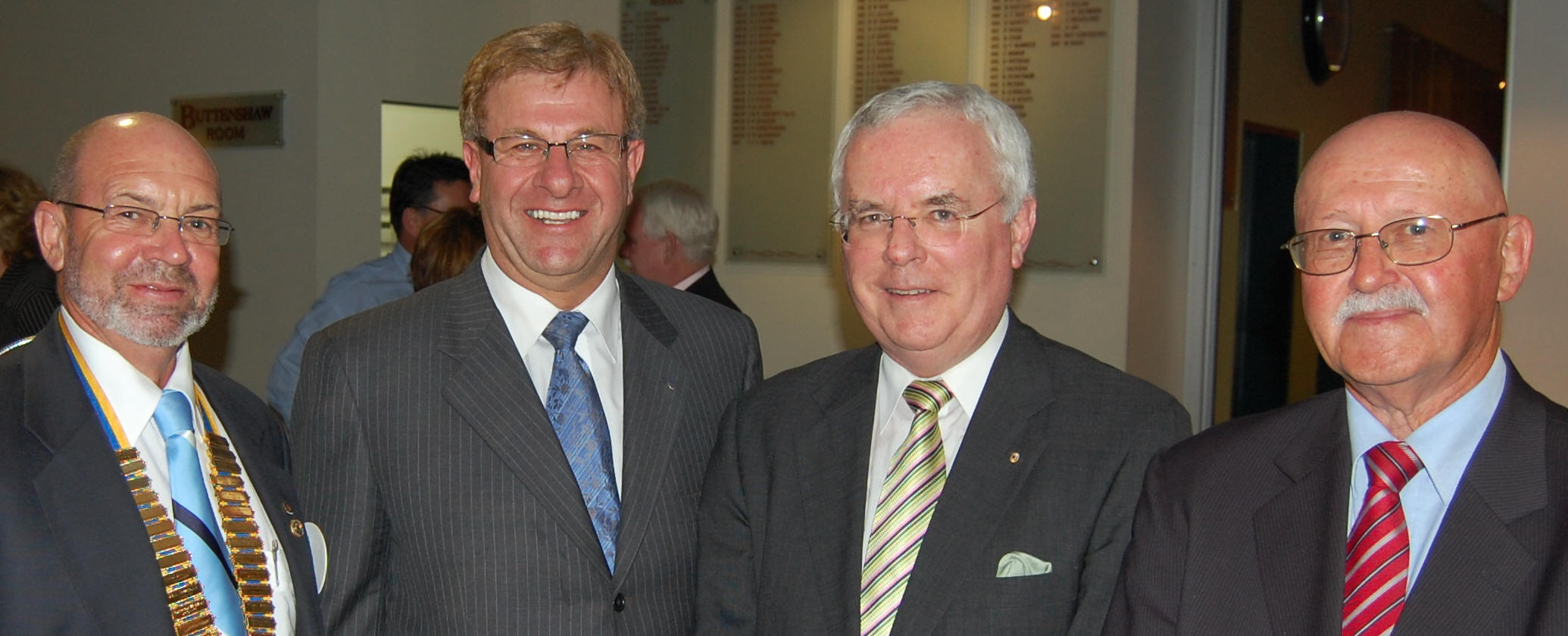Wednesday 12November 2008
Our guest speaker was Justice Terry Sheahan who is a judge in the Land and Environment Court. Terry was introduced by Paul White.
Terry has been a judge in the Court for eleven years. Terry noted that two of our members are regular attendees at the Court namely Bert Houston and Neil Kennan.
Terry stated that people using the Court knew something wonderful was happening but did not particularly enjoy the experience which he likened to the feelings of an artificially inseminated cow.
Terry believes that the structure of government in Australia is over-complicated and that a lot could be done to make things simpler. He noted that federal electorates are not permitted to include cross border areas and that this has led to some silly situations. This requirement should be changed. He also observed that Local Government could fix a pothole provided that the work was approved by the State Government and funded by the Federal Government. We should always question whether things could be changed to run the country more effectively.
Terry advised us that Australia does not have a rigid “separation of powers” as the United States of America has. In Australia the only arm of power that is separate is the judiciary. This means that judges are totally free of external influences – they are only influenced by people putting competing points of view before them in the courtroom.
An important foundation for achieving this independence is “tenure”. Until the 1970’s judges were appointed for life but this has been curtailed to ensure that judges are able to carry out their functions effectively.
Terry stressed that a judge in every case that comes before him needs to feel free from influence and also to be sure that the average person would be satisfied that the judge is bringing an unbiased mind to the case. If any circumstances would lead to the appearance that this was not the case the judge is duty bound to disqualify himself from hearing the case.
Terry noted that judges are frequently criticised by the community for the penalties they impose. However he advised that this is often uninformed criticism as the critics are usually not aware of a lot of the matters placed before the judge during the hearing.
Half of the matters previously dealt with by courts are now dealt with by tribunals. These have distinct differences to courts and utilise different ways to resolve disputes. Terry advised us that the setting up of the Workers Compensation Resolution Tribunal had been an important reform.
In conclusion Terry advised us of the important functions of the Judicial Commission which Terry helped set up. This body aims to achieve a balance between judicial independence and public confidence in the judiciary. At the time this body was set up a High Court judge was on trial and a chief magistratewas in jail so public confidence was a major issue. An ordinary person can lodge a complaint that a judge is not fit for office. After investigating the complaint the Commission can bring the judge to account or provide counselling. The commission also meets an important educational function which has led to more consistent sentencing. Terry was thanked by Bert Houston.
